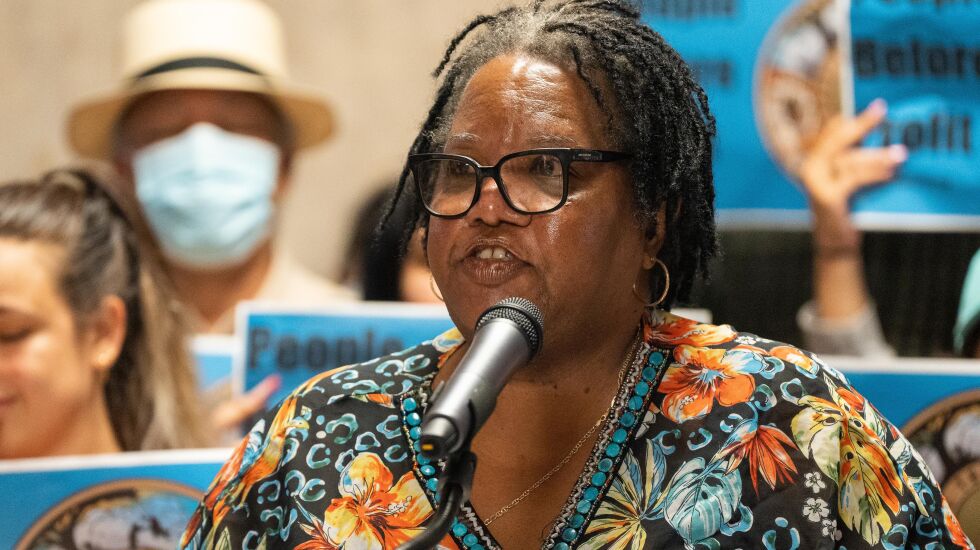
South and West Siders who live with heavy pollution call their neighborhoods sacrifice zones.
On Tuesday, a number of them told city lawmakers that they need a law with teeth that will protect them from dirty industry, including measures to slow the proliferation of warehouses that draw thousands of polluting diesel trucks.
The hearing follows a recently released citywide pollution-impact study and proposed reforms by Mayor Brandon Johnson’s administration. The assessment, part of a civil rights settlement with the federal government, reinforced earlier findings that Chicagoans on the South and West Sides are those affected most by a combination of pollution, health and social stresses.
“For decades, it has been city policy that pollution belongs in certain neighborhoods,” said Alfredo Romo, executive director of Neighbors for Environmental Justices in McKinley Park. “These vibrant communities where we live and work and play and go to school are where the city puts warehouses, metal shredders and factories.”
The hearing was an early first step for alderpersons to get public comment on an environmental cumulative burden law that will be introduced in the City Council later this year as part of the binding agreement with the U.S. Department of Housing and Urban Development.
“Nobody should have to live and be sacrificed because they’re Black,” said Cheryl Johnson, executive director of People for Community Recovery in Riverdale. “You allow industry to make a profit off the life of people, and you are accountable because you allowed them the permits to operate.”
Johnson’s more than 40-year-old organization was one of three that filed a complaint with HUD that resulted in the findings and the binding agreement to change.
HUD investigated Chicago after a complaint about the planned move of the General Iron metal-shredding operation to the Southeast Side and determined last year that the city violated residents’ civil rights with discriminatory planning and development policies that need to be changed.
Mayor Lori Lightfoot signed a binding agreement with HUD to reform policies as one of her last acts in office in May.
“We wouldn’t be here if it wasn’t for the complaint that was filed with HUD,” Johnson said. “We are here because we said enough is enough.
Multiple city departments involved with health, planning, transportation, housing and other areas are devising their own plans to meet HUD’s demands.
Chicago’s efforts to fundamentally change planning, zoning and land use will be thoroughly scrutinized by its residents who bear the brunt of past policies, advocates told lawmakers at the Tuesday hearing.
“Now comes the hard part,” Romo said. “We must hold city departments accountable to the promises they made in their environmental justice action plans — promises not just to the federal government but to the people of Chicago.”
The proposed law may be one of “multiple ordinances over multiple years,” said Ald. Maria Hadden (49th). Hadden led the informational hearing with Ald. Rossana Rodriguez-Sanchez (33rd).
“We take this job so seriously,” Rodriguez-Sanchez said. “We want to get it right for all of us.”







